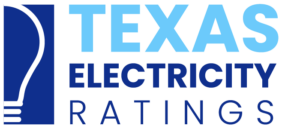I was running through the latest reviews at Texas Electricity Ratings and I came across some reviews complaining about being charged for using too little electricity. In past posts, I know I’ve explained to people how minimum usage charges exist in the Texas electricity market. So this week, I saw two specific reviews left for Mega Energy, both of which complained about a minimum usage charge that was tacked onto their bills. While not the most common complaint about electricity providers, it’s still one I see regularly. Here are the two quotes below:
During an era of oppulence in America, some people are striving for ways to cut back and reduce their impact on waste and energy consumption. In comes Mega Energy with “new and inventive ways” to punish you for not contributing to the smog and CO2 emissions for the Houston area. Each of the last two bills received had penalties for not meeting minimum power kWh usages. I spent the spring trying to make my place more energy efficient in preparation for this summer. Reward for these measures, less coal burned and charges unforseen when researching energy providers. Even their website under the “understand your bill” section there is no mention of these requirements and even Item N contradicts the charge. There is little chance I would ever meet their cryptic minimum usage and am gladly looking forward to our breakup. Unfortunately, they will win again since there is a $200 cancellation charge.
Cannot recommend Mega Energy at all! – never got a confirmation email letter with contract details and you cannot find it in your online account. – had to wait for at least 2 months to get our first bill. – and, they charge you EXTRA $12 per month when using less than 300 kw/h!!! so don’t even bother to save energy! -customer service is unfriendly, too
While I can understand why both of these people would be angry and upset at being penalized for, in their mind, simply being energy conscious, the fact of the matter is that this is standard operating procedure. Every electricity provider has an additional charge for minimum usage. It’s literally called a “minimum usage charge.” And it’s listed on the back of every company’s Electricity Facts Label. Now, the amount a company will charge if a customer doesn’t meet the minimum usage requirements, as well as the minimum usage kWh threshold can differ from company to company. However, that is something that customers should look into when they’re researching new providers. Typically the usage thresholds are at 500 kWh, and the fee is anywhere from $5-12 per month if the threshold isn’t met. But what I really am trying to inform people of here is that this isn’t a “hidden charge.” It’s not nefarious. Every provider has one. It’s listed in the Facts Label.
So the last question is, why do electricity providerscharge this fee? Well, people don’t want to hear this, but the fact of the matter is having a customer costs a certain amount of money from the providers. The costs associated with paper bills, customer support and welcome packets and the basic functions that are provided to customers all cost money. If a customer isn’t using enough electricity, then the electric company tacks on a few dollars to try and break even on the customer. It’s really that simple, and in the big picture, getting $8 tacked onto your electricity bill (a bill that is probably only $25 or very low) doesn’t even come close to the energy savings a customer is getting by using so little electricity. This is an imperfect metaphor, but think of it like a service charge or membership fee to shop at some places like Costco. At any rate, I don’t fault an electricity company for trying to simply break even on a customer. And at the same time, this is standard procedure, both for deregulated as well as regulated areas of America. It’s always existed, and it’s just part of the industry that we have to accept.
It might not be a truth people are happy to hear, but I hope that this article helps inform people about this part of the Texas deregulated electricity market.
